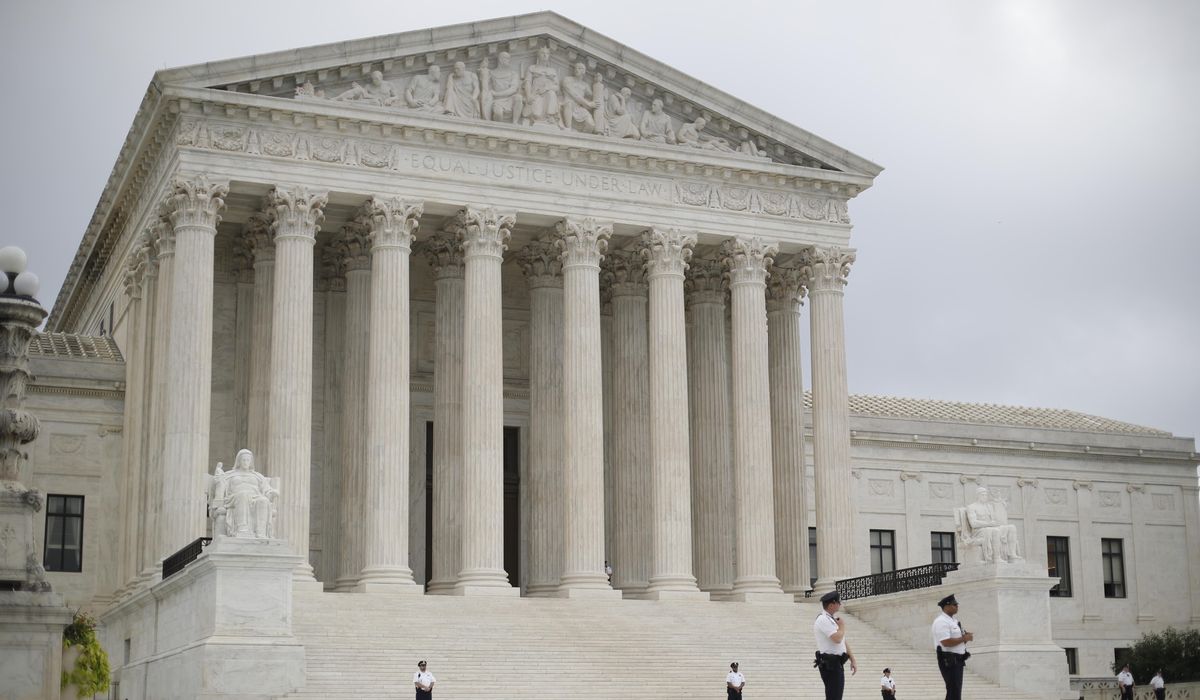


An Alaska pilot is asking the Supreme Court to hear his dispute against the state for taking his airplane — worth nearly $100,000 — over a misdemeanor conviction of transporting beer in a passenger’s luggage.
Ken Jouppi has been fighting this legal battle since 2012, when he took a passenger and her groceries from Fairbanks to Beaver, a small village north of Fairbanks.
The passenger had two cases of Budweiser and one case of Bud Light hidden in her luggage.
The town of Beaver prohibits alcohol. State troopers inspected the plane before Mr. Jouppi took off and discovered the beer.
He was charged with a misdemeanor and convicted. Worse yet, is that the state moved to forfeit his airplane, which is a Cessna U206D, valued at about $95,000.
The Alaska Supreme Court permitted the forfeiture, rejecting Mr. Jouppi’s argument that the penalty violated the Excessive Fines Clause, which prohibits the government from imposing disproportionate penalties.
“For certain Alaskan villages, it’s a crime to bring in alcohol. And when the means of importation is an airplane, the plane is subject to forfeiture,” read Mr. Jouppi’s high court petition.
It continued: “No matter that the offense is a misdemeanor. As here. No matter that the pilot is a first-time offender. As here. No matter that the alcohol is a six-pack of Budweiser. As here. No matter that it belonged to a customer. As here. The result: an airplane forfeited for a six-pack. The Excessive Fines Clause was built for cases like this.”
His legal team contends the taking of the airplane constitutes a violation of the Eighth Amendment, banning disproportionate monetary fines.
He made his filing Aug. 29.
“As government agencies increasingly exploit fines and forfeitures to pad their budgets, it’s vital that the Supreme Court make clear that the Excessive Fines Clause is a meaningful check on government overreach,” said Sam Gedge, a senior attorney at the Institute for Justice representing Mr. Jouppi.
The Supreme Court ruled in 2019 that the Excessive Fines Clause applies not just to the federal government but also to the states.
The court also ruled in a 1998 dispute that the amount of a fine “must bear some relationship to the gravity of the offense that it is being designed to punish.”
“This case isn’t just about me or my airplane anymore,” Mr. Jouppi said. “I’m in my 80s now, and I’ve been fighting this for over a decade because I see it as my duty to ensure that the Bill of Rights actually means something in protecting against government overreach.”
A spokesperson for the state of Alaska did not immediately respond to a request for comment.
The case is Kenneth John Jouppi, v. Alaska. It would take four justices to vote in favor of hearing the dispute for oral arguments to be granted during the 2025-2026 term, which begins in October.
• Alex Swoyer can be reached at aswoyer@washingtontimes.com.
